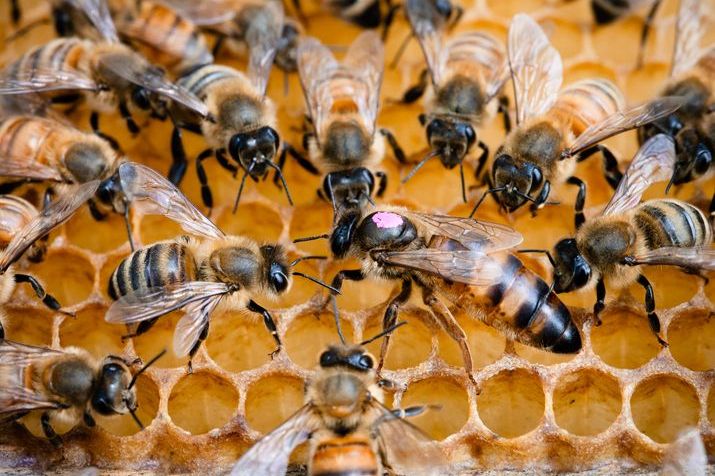
Compare Providers
Download our outplacement comparison sheet
Request Pricing
Compare our rates to other providers
The Queen Bee Syndrome is not a new phenomenon, but it still seems to have an impact in the workplace. Queen Bee Syndrome is defined as a situation where high ranking women in positions of authority treat the women who work below them more critically than their male counterparts. Many studies have been conducted to determine the cause of the Queen Bee. After evaluating research on the subject, a Wall Street Journal article reported that “women who achieved success in male-dominated environments were at times likely to oppose the rise of other women. This occurred, [researchers] argued, largely because the patriarchal culture of work encouraged the few women who rose to the top to become obsessed with maintaining their authority.”
Reaching out to women in the workforce, I got to hear stories and opinions from people of different generations, different industries, and different experience levels. Every woman interviewed could recount an instance when they witnessed Queen Bees in action; read below to hear their stories:
At her first job, Lauren* worked with an older female coworker who never recognized Lauren’s success for her own work and instead would credit it to someone else and would spread rumors about Lauren in the office. “I am definitely glass half full, I like everyone, give everyone the benefit of the doubt so it was a bit of a shock to see that someone didn’t like me just because I was younger than her and was successful,” said Lauren. “It actually made me want to work harder to prove that I wasn’t what she was saying, which was that I was just lucky and things fell in my lap, and that couldn’t have been further from the truth.” Now, about a decade later, Lauren is a manager, in charge of a team of male and female sales professionals. She makes sure she uses her role to raise people up rather than prevent their growth. She makes it a point to recognize peoples’ successes in a way that is equal across the board. Lauren has taken her experience working with a Queen Bee and flipped it around; she would rather be a mentor to younger employees than an obstacle.
Susan began her professional career twenty years ago and has since risen to a leadership role at her firm. When she first began her career, she remembers a hostile atmosphere working under female mentors, but she believes there has been a shift. She said, “Because we were women that were treated unfairly earlier in our careers, we make an effort to be much more encouraging to those below us today.” She also thinks the change in climate among women at work might have to do with the fact that there are now more women working in male-dominated fields. “I feel like now we’re seeing more than just a single woman at the top. For example, at my office there are six female partners, not just one. With more opportunities all-around, women do not feel as protective of their top-level positions. I think that definitely has contributed to the change in the atmosphere.”
Lynn, a young attorney, still believes Queen Bee Syndrome can be seen today in the law. She attributes the difficult female partner/female associate dynamic to generational differences. In addition to the typical generational problems between older generations and millennials, Lynn said, “I think the dynamic is even tougher because women from the earlier generations feel as though they had it harder, that they made it when it was a man’s world and that millennial women don’t appreciate or know how good/easy they have it.” And while she believes that in many ways women did have it tougher in previous decades breaking into the legal field, that is no reason to push women around them down. Instead of being competitive with one another, Lynn believes women in the law should stick together to succeed in the still male-dominated industry. “There is often nothing stronger than the alliance between women and the workplace should be no exception.”
Nina has been a nurse for over thirty years and has seen Queen Bees at every hospital she’s worked at. “It’s very, very prominent in nursing and it’s very sad. It shouldn’t be. Women are our own worst enemies,” she said. “Especially when there’s a new nurse, older nurses treat them horribly. In fact, they are nicer to male nurses because I guess they don’t feel threatened by them, because nursing is still more of a female field.” Nina thinks, however, that Queen Bees aren’t just created by competition among nurses. She thinks the way nurses are treated at hospitals may also play a part. “I think in general many nurses feel that they are constantly reminded by doctors that their position is lesser somehow, so for older nurses, it could be that they experienced sort of condescending treatment from higher up male doctors and they in turn do the same to young nurses. Like a scapegoat effect.”
Alexa is new to the workforce and is entering an incredibly male-dominated field: science research. However, she thinks that Queen Bee Syndrome won’t play as much of a role in her work. “For science, in my experience, women are more supportive of young women becoming involved, and I think it’s because even now it’s still mostly men doing the work. So in a way I think we are still proving we can do all that a guy can do, and I think the older women are still are eager to have younger women join them and propagate this idea that women are scientists just as men can be.”
Have you experienced the Queen Bee Syndrome in your career? Comment below with your story and how you think the dynamic between women in the workforce can change for the better.
*Names have been changed for anonymity
In need of outplacement assistance?
At Careerminds, we care about people first. That’s why we offer personalized talent management solutions for every level at lower costs, globally.


